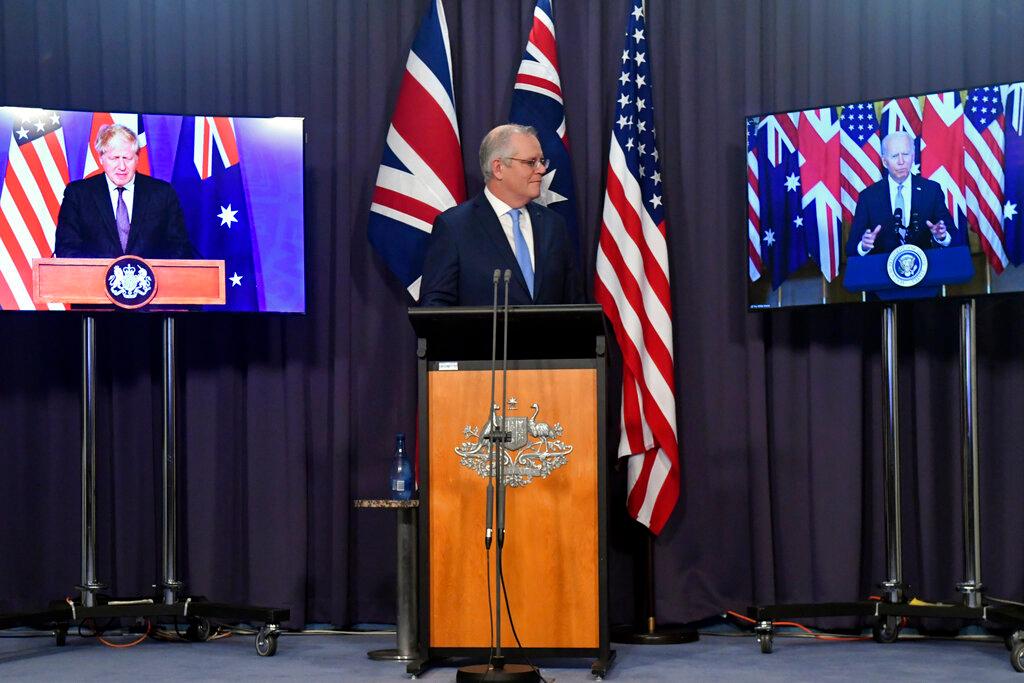WELLINGTON, New Zealand—The United States, Britain, and Australia have announced they’re forming a new security alliance that will help equip Australia with nuclear-powered submarines. The alliance will see a reshaping of relations in the Indo-Pacific region and beyond. Here’s what it might mean for various players:
United States
Ten years ago under President Barack Obama, the United States began discussing the need to focus more attention on the Indo-Pacific region while pivoting away from conflicts in the Middle East.Under President Joe Biden, the United States has now withdrawn its troops from Afghanistan while finding that tensions with China have only grown.





